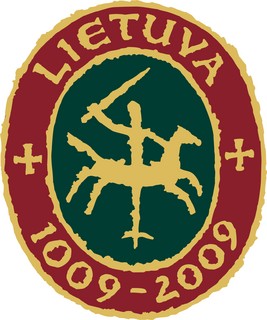Flashmobs are the latest craze in Europe this summer
Published:
18 August 2003 y., Monday
Flashmobs are the latest craze in Europe this summer. It’s another scorching day in Berlin, and on the Alexanderplatz in the city’s center, people are sitting on the edge of a fountain, hoping to catch some relief from the heat. A few are standing around in curious expectation. An Internet site had said a flashmob would take place at 5:00 p.m. But at 4:59 there was no trace of anything out of the ordinary.
Then at five on the dot, a circle of some 10 people suddenly convened around the fountain from out of nowhere. They were all young men in their 20s. Each took off his left show and passed it to his neighbor. Within about 15 seconds, the shoes had made a full circle and were back with their owners. The men gave themselves a high-five and dispersed without a trace. All that was left after their departure were amused and slightly confused onlookers, wondering what they just say.
Flashmobs, or spontaneous gatherings of people engaged in somewhat pointless activities, are the most recent U.S. import. In June of this year, the first such event took place in a Macy’s department store in New York. Since then, the concept has spread quickly across the United States, and leapfrogged over to Australia, Singapore and, as of the end of July, made its way to Europe.
In Germany, flashmobs have become very popular among a mostly young, computer-savvy group. More than 150 towns and cities have been the sites for the blitz-like gatherings, and in Berlin, at least two or three of the brief nonsensical events are announced every day on various Web sites, e-mail lists and mobile phone messages.
Šaltinis:
dw-world.de
Copying, publishing, announcing any information from the News.lt portal without written permission of News.lt editorial office is prohibited.
The most popular articles
 EU testing shows serious risk of shocks and fire in many lights. Stay safe – turn them off when you go to bed or leave the house.
more »
EU testing shows serious risk of shocks and fire in many lights. Stay safe – turn them off when you go to bed or leave the house.
more »
 The European Parliament has a close relationship with African, Caribbean and Pacific (ACP) states and during the 18th ACP/EU Joint Parliamentary Assembly in Angola, MEPs took time to visit the new city of Kilamba Kiaxi, south of Luanda, where 20,000 apartments are being built.
more »
The European Parliament has a close relationship with African, Caribbean and Pacific (ACP) states and during the 18th ACP/EU Joint Parliamentary Assembly in Angola, MEPs took time to visit the new city of Kilamba Kiaxi, south of Luanda, where 20,000 apartments are being built.
more »
 Everyone can fight climate change by not eating meat one day a week, urged Sir Paul McCartney at a European Parliament public hearing on "Global Warming and Food Policy: Less Meat = Less Heat" on Thursday.
more »
Everyone can fight climate change by not eating meat one day a week, urged Sir Paul McCartney at a European Parliament public hearing on "Global Warming and Food Policy: Less Meat = Less Heat" on Thursday.
more »
 Movies of Lithuanian cinema were demonstrated in the Supreme Headquarters Allied Powers Europe (SHAPE) near Mons (Belgium) from November 9 to 11.
more »
Movies of Lithuanian cinema were demonstrated in the Supreme Headquarters Allied Powers Europe (SHAPE) near Mons (Belgium) from November 9 to 11.
more »
 30% of Christmas lights present an obvious and direct risk of fire and electric shocks according to a new report published today by the European Commission.
more »
30% of Christmas lights present an obvious and direct risk of fire and electric shocks according to a new report published today by the European Commission.
more »
 Irish national TV Europe correspondent, Tony Connelly launched his new book “Don't mention the Wars: A Journey Through European Stereotypes” at European Union House, Dublin, on 25 November 2009.
more »
Irish national TV Europe correspondent, Tony Connelly launched his new book “Don't mention the Wars: A Journey Through European Stereotypes” at European Union House, Dublin, on 25 November 2009.
more »
 A wedding for a man and woman in Southern Peru clearly didn't count on the attendance of at least two guests-- family members of the groom's current wife.
more »
A wedding for a man and woman in Southern Peru clearly didn't count on the attendance of at least two guests-- family members of the groom's current wife.
more »
 Day two of the Employment, Social Policy, Health and Consumer Affairs Council was primarily dedicated to health and public health issues.
more »
Day two of the Employment, Social Policy, Health and Consumer Affairs Council was primarily dedicated to health and public health issues.
more »
 A cold and rainy day in Madrid, Spain - at just degrees celsius not the best conditions for a naked demonstration.
more »
A cold and rainy day in Madrid, Spain - at just degrees celsius not the best conditions for a naked demonstration.
more »
 Today, the European Commission adopted a financial package of €275 million to support programmes to eradicate, control and monitor animal diseases in 2010.
more »
Today, the European Commission adopted a financial package of €275 million to support programmes to eradicate, control and monitor animal diseases in 2010.
more »